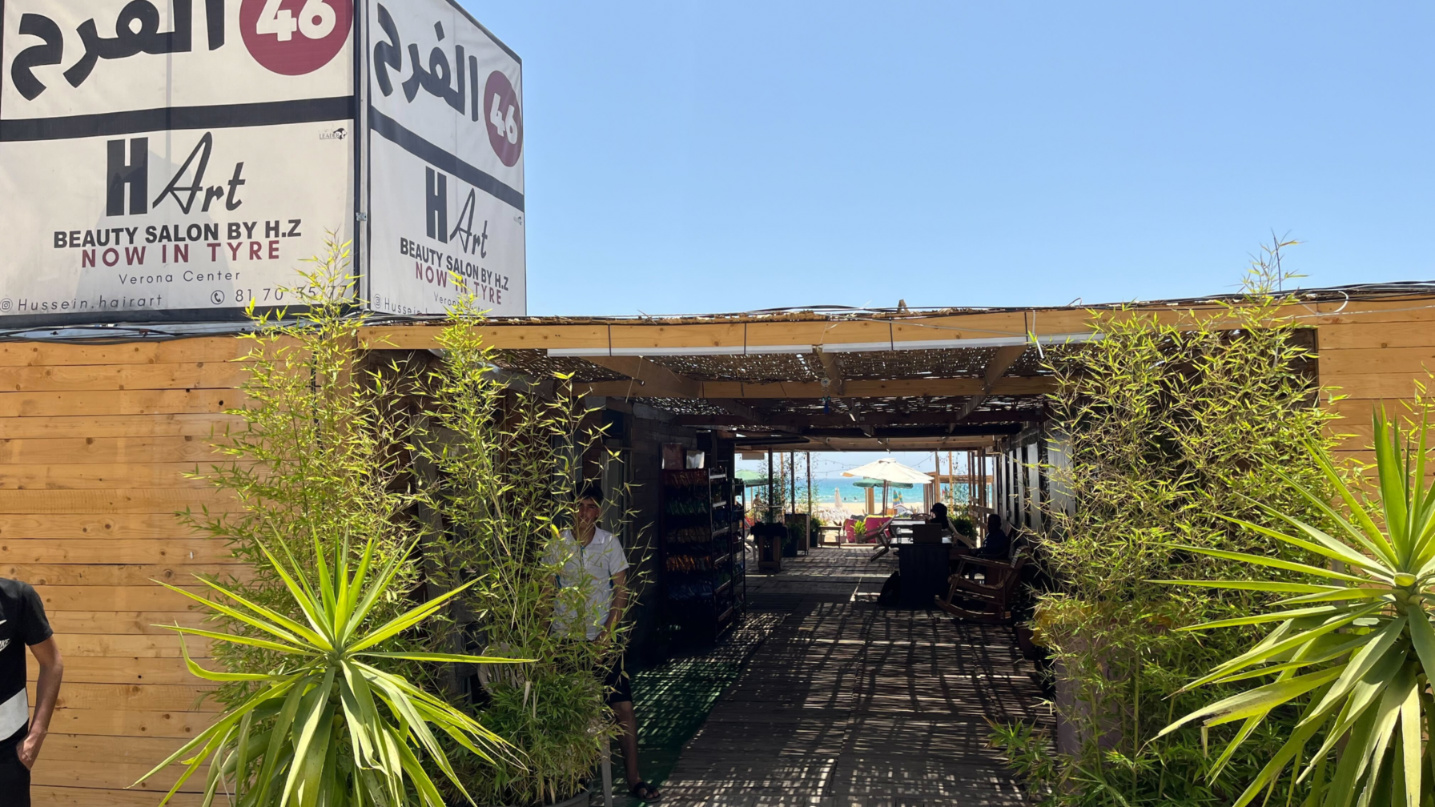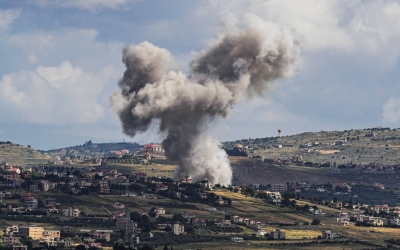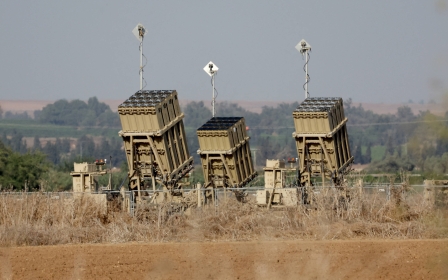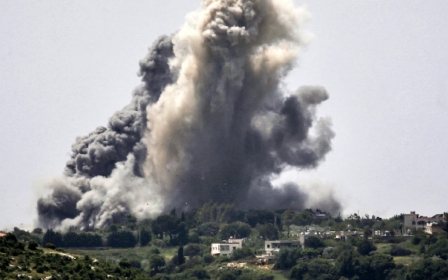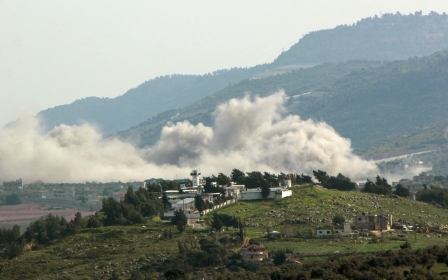Defiant Lebanese hit the beach as Israeli strikes hit nearby
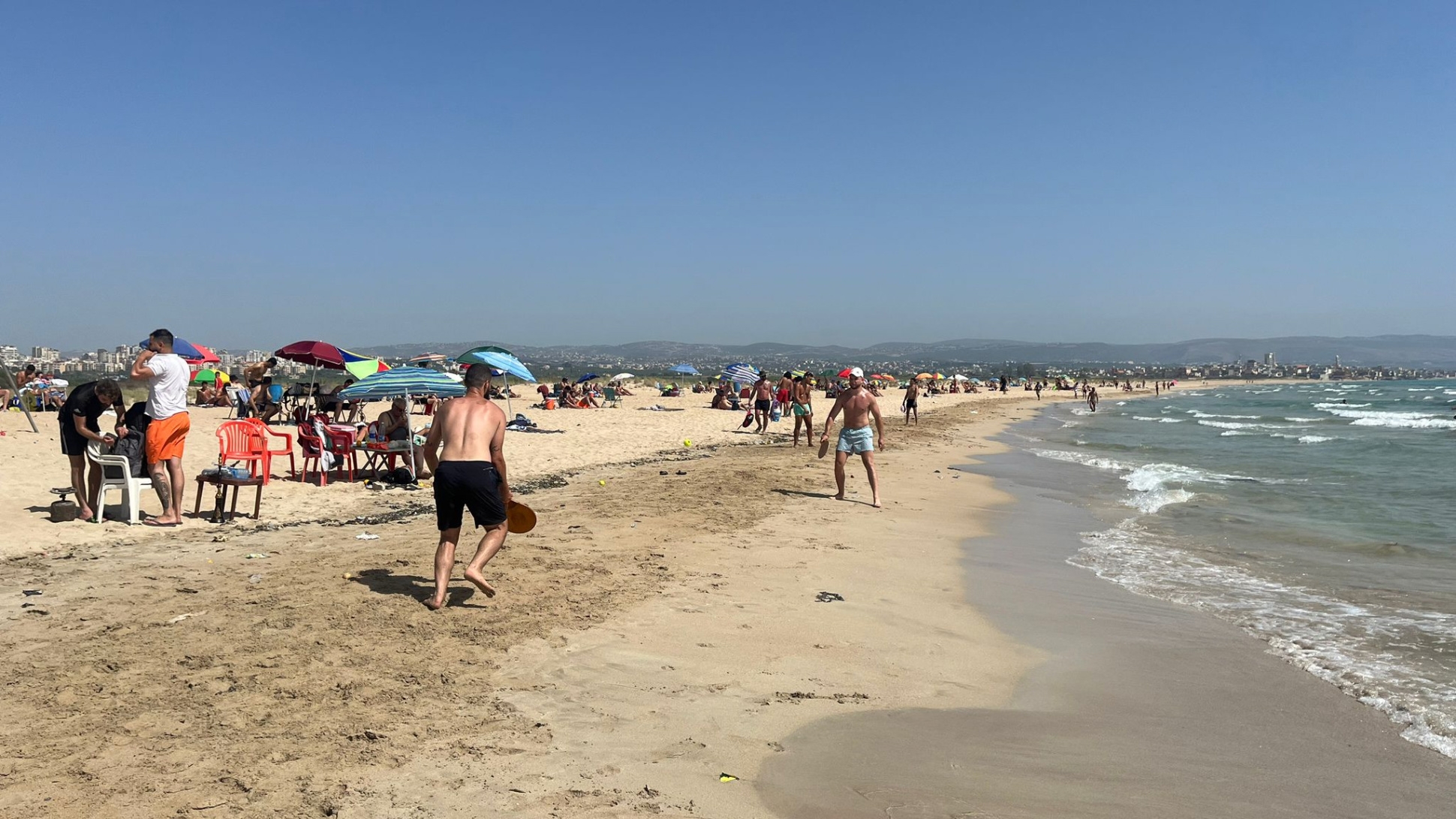
Under the scorching heat, with regular news of Israeli air strikes and warplanes in the vicinity rolling in, Rajaa Jaafar opens her mini fridge to crack open a can of beer while sunbathing on Tyre's beach.
So far the skies are clear. But Jaafar and her friend, Rasha Wehbe, describe hearing the booms of strikes a handful of kilometres away and seeing smoke rising from the hills that separate southern Lebanon from Israel. They remain undeterred.
"We are experiencing these things in our homes," Jaafar tells Middle East Eye. "Instead of getting frightened at home, we get frightened at the beach."
You see all sorts on south Lebanon's long sandy beaches. Lebanese of all backgrounds while away the summer weekends grilling, swimming and dancing almost within sight of the Israeli border - even with the looming threat of further conflict.
Since Israel's war on Gaza began in October, Hezbollah and other groups have staged cross-border attacks on northern Israel from Lebanon.
New MEE newsletter: Jerusalem Dispatch
Sign up to get the latest insights and analysis on Israel-Palestine, alongside Turkey Unpacked and other MEE newsletters
Israeli officials have repeatedly said they are prepared for intense operations in Lebanon. Israel's warplanes have struck deep into Lebanese territory, killing over 460 people according to an AFP tally. At least 90 civilians are among the dead.
With strikes hitting southern towns daily, the cracks of Israeli jets breaking the sound barrier is a regular part of Lebanese life. On the beaches, leisurely Lebanese can be seen cheering mockingly as the sounds ring out overhead.
جدار الصوت يحاول اخافة اللبنانيين المتجمعين على شاطئ بحر صور
— مصدر مسؤول (@fouadkhreiss) June 5, 2024
اللبنانيون : 👇🏻 pic.twitter.com/N5LTWnYvk8
Jaafar and Wehbe come from villages in the south. For them, a trip to the beach represents “a kind of challenge, steadfastness and support”, by showing that southerners are still, to a certain extent, able to live life normally.
They acknowledge, however, that this is shadowed by a sense of danger.
Towns and villages closest to the border have been devestated. Agricultural land has been torched and attacks have displaced over 94,000 people. Jaafar's village doesn't lie on the border, so isn't among the worst affected. But with Israel striking deeper and deeper, and even threatening a ground invasion, "we have become postponed martyrs", she says.
“We do not know at what moment something near us can get hit. Every day we leave our homes knowing there is a chance that we will not go back.”
Wehbe and Jaafar work for statistics companies, touring the south to help the UN’s World Food Programme (WFP) and other aid and support initiatives.
They see first hand what this conflict is doing to the area, like in Adloun, a town north of Tyre, where an elderly woman was recently killed in an air strike.
"I was right next to the home that was hit,” says Jaafar.
‘No one is scared’
Along one section of Tyre's coastline is the "tents beach", where cabins selling food and drink invite a more raucous atmosphere. Amir Jam, 30, decided to open one this year, and says business is going well despite the conflict.
“Thankfully, no one is scared," he tells MEE. "I love the beach, we opened and it is going well.”
Nearby is Abu Said's cabin, which has been serving beachgoers for 30 years. The 70-year-old owner says the border clashes have had a noticeable impact on footfall, but he has not been signifcantly impacted. Abu Said has had customers from as far north as Tripoli and Jounieh, he says.
“I have several reservations from outside Tyre,” he says. “People are even coming from areas that are being hit.”
Sat at the end of Lebanon's coastal highway, Tyre is usually a straightforward place to get to. But the Israeli army is jamming GPS services in the region, so people relying on satellite navigation apps are now often directed towards Beirut's airport rather than the southern city.
“People are coming, they sit and look at the air strikes from here,” Abu Said says. “They do not run away.”
After invading Lebanon in 1982, Israel occupied much of the south. Fatigued by years of fighting off Hezbollah attacks, Israeli troops withdrew in 2000.
Compared to those years of occupation, Abu Said says, the threat of Israeli strikes is minimal.
“The Lebanese people have changed. They do not care. You hit, they will look at it.”
Joe and Maroun, both 24, come from Tyre's colourful Christian quarter. They agree that the fear factor has worn off.
“Honestly, I am not scared at all, we are used to it,” says Joe. “The other day, we were playing beach paddle, we saw a strike. But it’s fine, we just continued.”
Big coastal cities have mostly been spared from Israel’s air strikes, though their outskirts and suburbs have sometimes been hit.
Joe and Maroun say that as long as a wider-scale war does not erupt, they will continue living their lives and going to the beach.
‘There is no one left’
The picture is different in smaller towns and villages.
Some 20km south of Tyre, just above the border with Israel, is the town of Naqoura, visible from Tyre’s beach.
The town was once a popular destination among Lebanese youth, known for its clean turquoise blue waters. Over the past eight months, it has been a regular target for Israeli air strikes.
Most recently, Israel hit an ambulance belonging to the Hezbollah-linked Islamic Health Commission on 31 May, killing one medic.
According to Mahmoud Mahdi, owner of a Naqoura beach resort, the town is a shadow of its former self.
“It’s empty, there is no one left,” he says. Only UN peacekeeping forces headquartered in Naqoura remain there, he adds.
Mahdi had to close his resort once the clashes started and has not reopened it since. He occasionally makes the risky trip to the town to check on his property and was there when an Israeli strike hit it in January.
“We cannot welcome anyone, we need to see where we’re heading,” he says.
Despite the emotional and economic hardship, the sight of people enjoying themselves on the beach in Tyre provides some happiness. At least some of the south can experience a sense of normalcy, he says.
“I hope for the entire region to be fine.”
Middle East Eye delivers independent and unrivalled coverage and analysis of the Middle East, North Africa and beyond. To learn more about republishing this content and the associated fees, please fill out this form. More about MEE can be found here.



